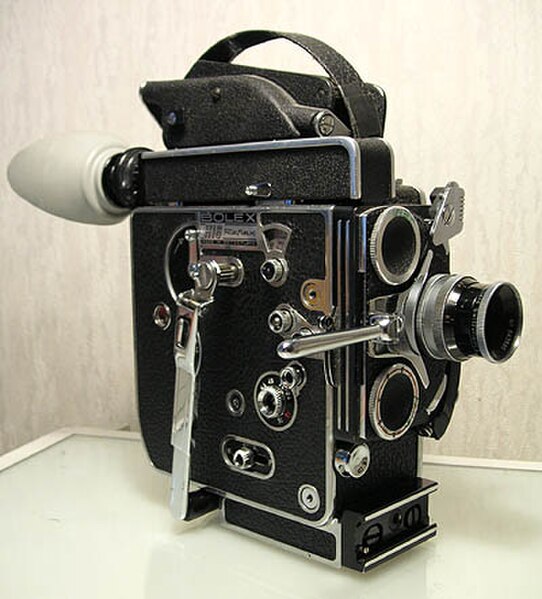A film score is original music written specifically to accompany a film. The score comprises a number of orchestral, instrumental, or choral pieces called cues, which are timed to begin and end at specific points during the film in order to enhance the dramatic narrative and the emotional impact of the scene in question. Scores are written by one or more composers under the guidance of or in collaboration with the film's director or producer and are then most often performed by an ensemble of musicians – usually including an orchestra or band, instrumental soloists, and choir or vocalists – known as playback singers – and recorded by a sound engineer. The term is less frequently applied to music written for media such as live theatre, television and radio programs, and video games, and said music is typically referred to as either the soundtrack or incidental music.

A film score being recorded by the composer (conducting at the podium, with his back to the camera) and a small ensemble. The film is playing on the screen to act as a reference.
A film – also called a movie, motion picture, moving picture, picture, photoplay or (slang) flick – is a work of visual art that simulates experiences and otherwise communicates ideas, stories, perceptions, feelings, beauty, or atmosphere through the use of moving images. These images are generally accompanied by sound and, more rarely, other sensory stimulations. The word "cinema", short for cinematography, is often used to refer to filmmaking and the film industry, and the art form that is the result of it.
An Anschütz electrotachyscope American Scientific, 16/11/1889, p. 303
A famous shot from Georges Méliès Le Voyage dans la Lune (A Trip to the Moon) (1902), an early narrative film and also an early science fiction film
Salah Zulfikar, one of the most popular actors in the golden age of Egyptian Cinema
This 16 mm spring-wound Bolex "H16" Reflex camera is a popular entry level camera used in film schools.





